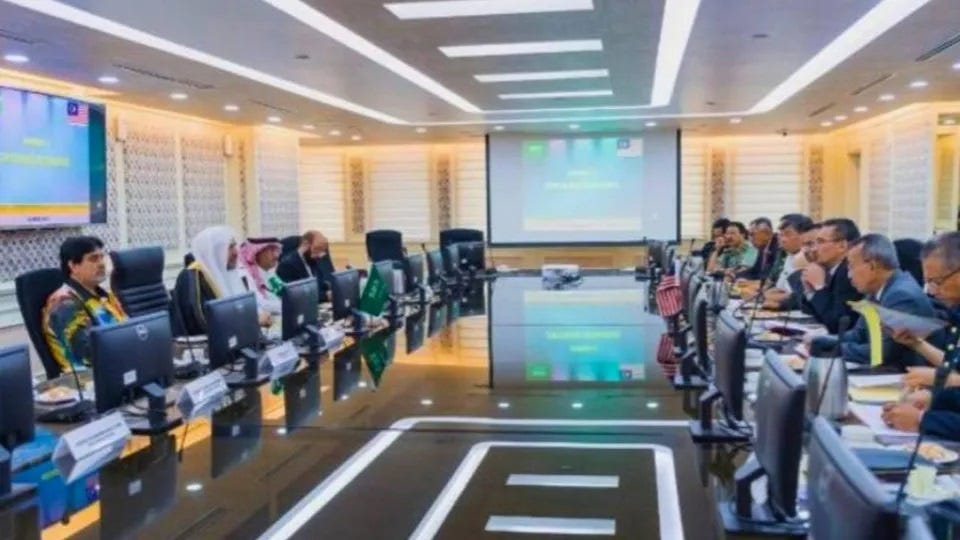Malaysia open to talks to revive Saudi-backed counterterrorism centre
The centre was closed abruptly by Malaysia's new government in 2018.

KUALA LUMPUR: Malaysian Prime Minister Anwar Ibrahim said Kuala Lumpur is open to talks on reviving a Saudi-backed counterterrorism centre in Malaysia abruptly closed in 2018.
Anwar said he does not agree with the way the King Salman Centre for International Peace (KSCIP) was shut down as it was done without consultation with the Saudi Arabian government, Malaysia’s national news agency Bernama reported.
“Any government has the right to or can propose its closure. But with our friend (Saudi Arabia) there should have been consultations, notices and discussions. Apparently, this was not done,” he told a press conference in Jeddah Friday at the end of his three-day official visit to Saudi Arabia.
“So I cannot defend the hasty way of ending the initiative without discussing with the parties involved.”
Anwar was responding to a question whether his government planned to revive the proposal to construct a permanent KSCIP building in Putrajaya.
KSCIP was first proposed after the visit of Saudi monarch King Salman Abdul Aziz Al-Saud to Malaysia in March 2017 and the participation of then-Prime Minister Datuk Seri Najib Razak in a summit in Riyadh which was also attended by then-US President Donald Trump.
Anwar said he had personally informed Saudi leaders and their representatives earlier that he did not support the action of ending the initiative.
“Should they revive it? We are open to discussions, setting the appropriate regulations and methods,” he added.
Mahathir Mohamad-led new government formed after the 2018 general election ordered the immediate closure of the KSCIP less than 13 months after it was launched without giving a reason.
The KSCIP in Kuala Lumpur was to cease operations immediately and its functions to be absorbed by the Malaysian Institute of Defence and Security, then-Defence Minister Mohamad Sabu announced.
While Sabu didn’t give a reason for the closure, Mohamad Sabu’s predecessor Hishammuddin Hussein defended the centre when it was launched in March 2017, saying it was crucial to curb the spread of violent extremism by armed groups, including Daesh.



